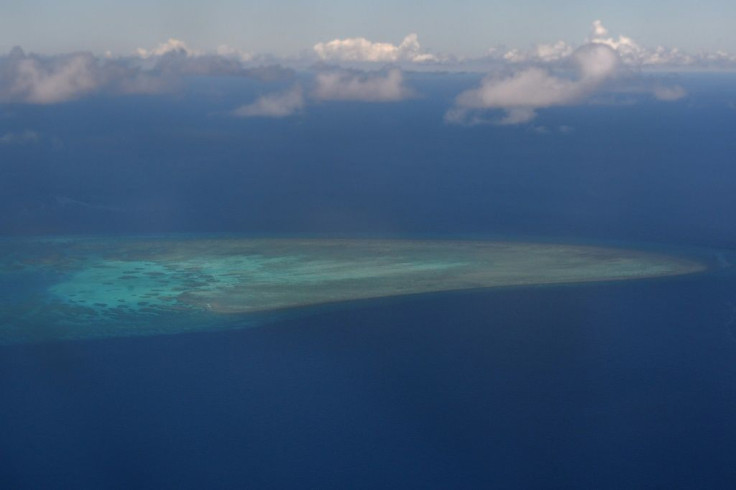South China Sea: Pentagon To Ignore Beijing's New Law, US Forces Will Follow International Law
KEY POINTS
- The new law requires foreign vessels to report to Beijing inside its "territory"
- The U.S calls it a "serious threat" to freedom of navigation and trade
- Beijing claims rights over much of the South China Sea, including the Taiwan Strait
The Pentagon has brushed aside a new Chinese law that requires foreign vessels entering its "territorial waters" to report to Beijing, claiming the U.S. Navy operations in the South China Sea won’t be affected by it.
"The United States will continue to fly, sail and operate wherever international law allows," Defence Department spokesperson Lt. Col. Martin Meiners told Stars and Stripes last Wednesday, immediately after Beijing notified the new law.
As per the new regulation, foreign vessels should report ship and cargo information to China’s Maritime Safety Administration. This covers submersibles, nuclear vessels, ships carrying radioactive materials, ships carrying bulk oil, chemicals, liquefied gas, and other toxic and harmful substances. Vessels considered a threat to the country's maritime traffic safety should also comply with the rules.
However, U.S calls it a "serious threat" to freedom of navigation and trade. According to Pentagon spokesman John Supple, the U.S. has long maintained that one nation’s law "must not infringe" the rights of other nations under international law.
"Unlawful and sweeping maritime claims, including in the South China Sea, pose a serious threat to the freedom of the seas, including the freedoms of navigation and overflight, free trade and unimpeded lawful commerce, and the rights and interests of the South China Sea and other littoral nations," Supple was quoted by the news outlet.
Beijing claims rights over much of the South China Sea, including the Taiwan Strait and several island chains in the South China Sea. However, these claims are not approved by neighboring countries, including the Philippines, Vietnam, Malaysia and Indonesia.
Despite China's claim to resources within the sea areas falling within the "nine-dash line," the U.S. Navy regularly conducts freedom-of-navigation operations in the region.
Recently, the guided-missile destroyer USS Kidd passed through the Taiwan Strait, the Navy’s eighth trip through the waterway this year. This had provoked China, which called it the biggest threat to peace and stability and creator of security risks in the 160-kilometer-wide Taiwan Strait.
Taiwan too had raised concern about the new Chinese law. Taipei Times had quoted Su Tzu-yun, director of the Division of Defense Strategy and Resources at the Institute of National Defense and Strategic Research, who said the new law would give "Beijing an excuse to respond to freedom of navigation exercises carried out by other nations."

© Copyright IBTimes 2025. All rights reserved.





















